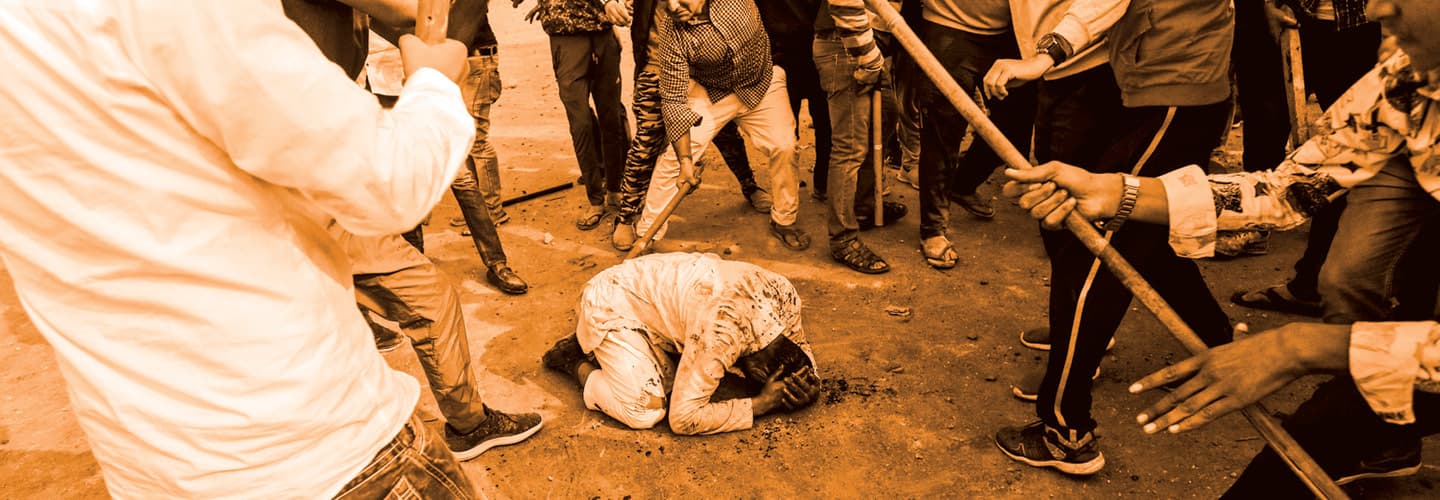A few days after an Indian court banned head scarves—also known as hijabs—for Muslim students, 11th-grader Leefa Mahek stood outside the gates of her school.
Leefa, a Muslim who wears a hijab, demanded to be let inside. But the administrators of Mahatma Gandhi Memorial College in Udupi, in southern India, refused. Suddenly she had no way to finish her education.
“Last minute, they are trying to pour water over our hard work,” she said. “They can’t do this.”
Historically, India has prided itself on being the world’s largest democracy and protecting minority rights, like those of its large Muslim community. But in the past few years, India has changed. Increasingly, extremist groups are targeting Muslims with hate speech, and authorities in this Hindu-majority country are deliberately ignoring it. Intolerance for dissent of all kinds is on the rise.
An Indian court banned head scarves, also known as hijabs, for Muslim students. A few days after, 11th-grader Leefa Mahek stood outside the gates of her school.
Leefa is a Muslim who wears a hijab. She demanded to be let inside the school. But the staff of Mahatma Gandhi Memorial College in Udupi, in southern India, refused. Suddenly, she had no way to finish her education.
“Last minute, they are trying to pour water over our hard work,” she said. “They can’t do this.”
India has long prided itself on being the world’s largest democracy. The nation also has a tradition of protecting minority rights, like those of its large Muslim community. But in the past few years, India has changed. More often, extremist groups are targeting Muslims with hate speech. The authorities in this Hindu-majority country are choosing to ignore the attacks. Intolerance for dissent of all kinds is also rising.

